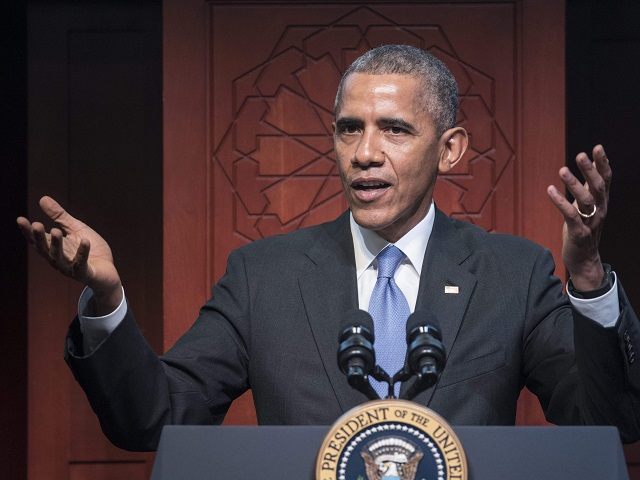This article originally appeared in The Atlantic:
It is not a new practice for critics of President Obama to question his commitment to the fight against Islamist terrorism, but Donald Trump, the presumptive Republican presidential nominee, has cast doubt on Obama’s commitment to this struggle in uniquely florid and bizarre ways. On Tuesday, he claimed that Obama “prioritizes” America’s enemies over the American people; on Monday, he insinuated that Obama is sympathetic to the Islamic State terror group. (Read the previous sentence again and ask yourself: How has it come to this?)
[…]
Over the course of many conversations with Obama about the Middle East, terrorism, Islam, and the role of religion in fomenting extremist behavior, I’ve developed at least a partial understanding of his thinking on these subjects. Suffice it to say that I find neither the right’s nor the left’s interpretations of Obama’s policy and rhetorical predispositions to be particularly satisfying or comprehensive.
Obama, in my reading, does not—contra his right-leaning critics—suffer illusions about the pathologies afflicting the broader Muslim world. If anything, his pessimism on matters related to the dysfunctions of Muslim states, and to the inability of the umma—the worldwide community of Muslims—to contain and ultimately neutralize the extremist elements in its midst, has, at times, an almost paralyzing effect on him. The president has come to the conclusion (as I outlined in my recent Atlantic cover story, “The Obama Doctrine”) that the underlying problems afflicting Islam are too deep, and too resistant to American intervention, to warrant implementation of the sort of policies that his critics, including his critics in foreign-policy think tanks, demand.
Early in his first term, Obama believed (rather too naively, in my opinion) that he could, in fact, make a substantive difference. He delivered a speech in Cairo that was meant to reset relations with Muslims, but was also meant, he later told me, to challenge Muslims to cease manufacturing excuses for problems of their own making. He told me recently, in reference to the Cairo speech, “My argument was this. Let’s all stop pretending that the cause of the Middle East’s problems is Israel. We want to work to help achieve statehood and dignity for the Palestinians, but I was hoping that my speech could trigger a discussion, could create space for Muslims to address the real problems they are confronting—problems of governance, and the fact that some currents of Islam have not gone through a reformation that would help people adapt their religious doctrines to modernity.”

COMMENTS
Please let us know if you're having issues with commenting.